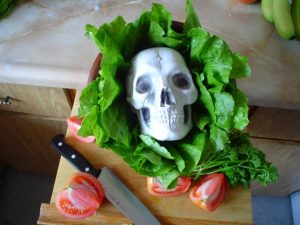On September 8, 2018, Gravel Ridge Farms recalled cage-free large eggs because they might be contaminated with Salmonella.
 Do not eat, sell, or serve recalled Gravel Ridge Farms cage-free large eggs.
Do not eat, sell, or serve recalled Gravel Ridge Farms cage-free large eggs.
Gravel Ridge Farms recalled packages of a dozen and 2.5 dozen eggs in cardboard containers with UPC code 7-06970-38444-6.
Recalled eggs have “best if used by” dates of July 25, 2018 through October 3, 2018.
Recalled eggs were sold in grocery stores and to restaurants in Alabama, Georgia, and Tennessee. For a full list of locations where recalled eggs were sold, visit the FDA website.
Return any Gravel Ridge Farms eggs to the store for a refund or throw them away, regardless of the “best if used by” date. Even if some eggs were eaten and no one got sick, do not eat them.
Wash and sanitize drawers or shelves in refrigerators where recalled eggs were stored. Follow these five steps to clean your refrigerator.
Contact a healthcare provider if you think you got sick from eating recalled Gravel Ridge Farms shell eggs.
Consumers and restaurants should always handle and cook eggs safely to avoid foodborne illness from raw eggs. It is important to handle and prepare all fresh eggs and egg products carefully.
Eggs should be cooked until both the yolk and white are firm. Scrambled eggs should not be runny. Egg dishes such as casseroles and quiches should be cooked to an internal temperature of 160°F or hotter.
Make sure that foods that contain raw or lightly cooked eggs, such as eggs over easy or hollandaise sauce, are made only with pasteurized eggs. Pasteurization kills disease-causing germs.
Wash hands and items that came into contact with raw eggs—including countertops, utensils, dishes, and cutting boards—with soap and water.
And a song dedicated to my high school girlfriend, Susie.










